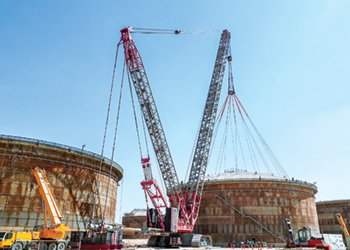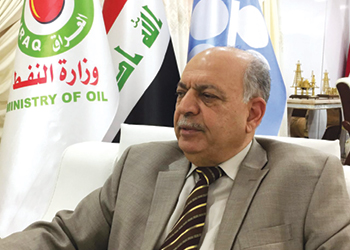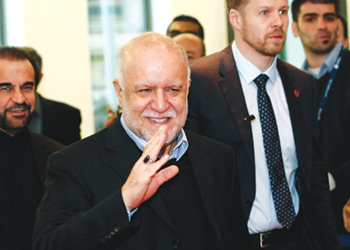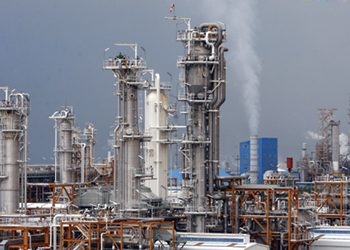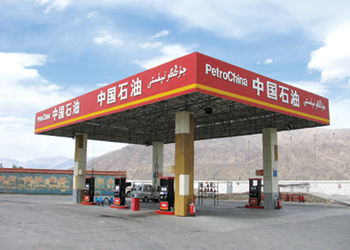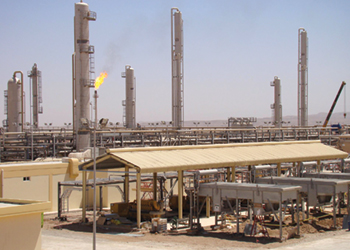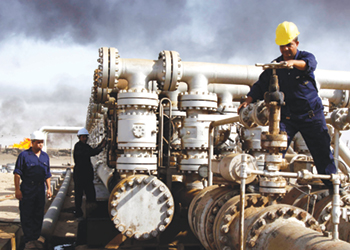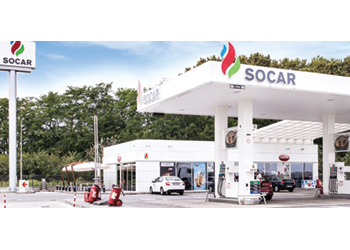
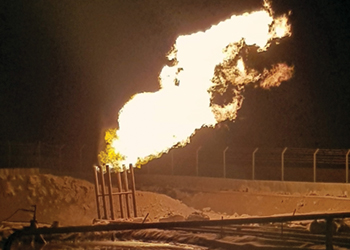 PPL ... exploring for oil in Iraq
PPL ... exploring for oil in Iraq
The block is located in Mesopotamian basin and it is surrounded by areas that have several large oil and gas fields. A Chinese drilling contractor Zepec is drilling the well on an integrated project management basis
State-owned Pakistan Petroleum Limited (PPL) spud the first exploration well in Iraq to have pioneered the presence of local oil and gas exploration sector on the international energy map, the company says. ‘Pakistan Petroleum Limited, which is the operator of Block 8 in Iraq, spud the first exploration well, Madain-1,’ PPL says in a filing with the stock exchange.
The block is located in Mesopotamian basin and it is surrounded by areas that have several large oil and gas fields. A Chinese drilling contractor Zepec is drilling the well on an integrated project management basis. Currently, PPL together with its subsidiaries has a portfolio of 43 exploration blocks of which the company operates 26, including one block in Iraq, while 17 blocks, comprising three offshore leases in Pakistan and one onshore concession in Yemen, are operated by joint venture partners. PPL has made 12 discoveries in operated blocks, four in Gambat South Block (Hadi X-1A, Zafir X-1, Badeel X-1 and Hadaf X-1), two in Kotri Block (Kotri X-1 and Yasar X-1) one each in Hala (Bashar X-1 ST), Dhok Sultan (Dhok Sultan X-1), Hub (Hub X-1), Shah Bandar (Benari X1 ST-2), Karsal (Talagang X-1) blocks as well as one at Adhi (Adhi South X-1) since January 2016. PPL says the latest move marks a significant milestone in the company’s history as its first international exploration well. ‘Notably, the company is also the first Pakistani oil and gas exploration and production company to create a footprint as an operator on the international oil and gas map.’ The Madain-1 prospect was matured with the help of a 3D seismic survey carried out by the company over a 300 square kilometres area of the block that spans around 6,000 square kilometres.
There are multiple reservoir targets in Madain-1 that will be drilled through to a depth of approximately 5,000 metres. Iraq’s gas output is expected to reach 1.3 million cubic feet per day (mmcfd) by the end of 2020, an increase of 400 mmcfd from current levels, according to Reuters. The country, Opec’s second-largest producer, is targeting production capacity of five million barrels per day (mbpd) in 2019, with average exports expected to reach around 3.8 mbpd. Iraq currently pumps around 4.6 mbpd, second only to Saudi Arabia in the Organization of the Petroleum Exporting Countries.
There can be no doubting Iraq’s oil credentials. It is Opec’s number two oil producer, second only to Saudi Arabia, and holds the world’s fifth-largest proved oil reserves. Production is on the rise, having nearly doubled over the past decade, averaging around 4.5 million barrels per day in 2018.
Almost 90 per cent of the country’s output comes from giant oilfields in the southern part of the country. The remainder is largely pumped from oilfields in the northeast, in the semiautonomous Kurdistan Region of Iraq (KRI), which is under the control of the Kurdistan Regional Government.
This is good news for a country that is heavily dependent on revenues from its oil exports, which, according to the IMF, accounted for almost 90 per cent of total government revenues in 2017. The rise in oil prices, despite recent wobbles in the face of US-China trade tensions, has certainly been a boost to the country’s coffers and provides further impetus for investment in development and infrastructure.
This upwards trajectory is likely to continue as the country seeks to fill the supply gap left by new US sanctions on Iran. Iraq is keen to lift production capacity to 5 mbpd this year, and to 8.5 mbpd in the coming years as it upgrades its infrastructure. The southern oilfields are key to this growth, expected to pump some 6.5 mbpd in the coming years, with the country keen to partner with international oil companies (IOCs) to secure the necessary investment to unlock its vast resource potential.
Iraq’s growing importance as a key player on the world’s energy stage will be discussed at the upcoming CWC two-day event, Iraq Petroleum, which will be held in London on June 27-28 in collaboration with the new Federal Government of Iraq. For the first time, the event is being co-located with the one-day Kirkuk & Mosul Mega-Projects event on June 29, where delegates will be first to hear government plans and investment opportunities to develop the giant oilfields in the newly liberated oil-rich areas of Kirkuk and Mosul.
It’s not just oil that’s creating new investment opportunities for international partners. Oslo-based energy consultancy Rystad Energy forecasts that in terms of resoruces sanctioned for development, gas will overtake oil projects in 2019, with new projects, mainly in the Kurdistan Region, set to triple the country’s gas output from just over 1 billion cubic feet per day in 2017 to 3 billion cf/d in 2022, enabling it to meet growing domestic demand for gas and possibly even launch the country as a gas exporter for the first time. Again, it’s a topic that will be widely covered at CWC’s Iraq Petroleum event, including presentations from Dr Jaafar Oklany, commercial director of Basra Gas Company and Ali H. Khudhier Al-Saady, former director general of South Gas Company, Basra.
For anyone with an interest in Iraq’s future, and indeed the stability of the world energy mix, this is one event not to be missed.



















































































